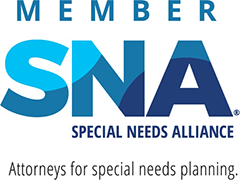A. Introduction
It is common practice for parties in a workers' compensation case to reach an agreement for a lump sum payment in settlement of all claims. A settlement of this type usually includes a full and final resolution of the carrier's liability for indemnity and for all future medical benefits. CMS has an interest in the portion of the settlement intended to cover future medical benefits since, prior to the settlement, the workers' compensation carrier was the responsible party for paying the injured party's medical expenses for his or her lifetime. Once the settlement is complete, CMS does not want the injured person looking to Medicare as the primary payer of the injured party's medical expenses unless the injured party has exhausted proceeds from the settlement on his or her medical care.
B. Shifting the Payment of Medical Expenses.
CMS protects its interests in workers' compensation settlements by requiring a certain amount of a settlement be specifically be set aside for payment of future medical benefits that Medicare otherwise would pay. If no amount of the settlement is set aside from the settlement, CMS may refuse to provide any Medicare-covered services until the entire amount of the settlement is exhausted.
Despite the regulatory prohibition of shifting the payment of medical expenses from the insurance carrier to Medicare , the standard of practice in the industry was to simply ignore the problem. The problem was easily ignored since CMS had not implemented any procedures for the parties to submit their settlement to CMS for approval and CMS had never attempted any enforcement action in this area. In recent years, CMS has implemented procedures to protect Medicare's interest the settlement of workers' compensation cases.
C. Types of Settlements
The Medicare regulations distinguish between a commutation and compromise settlement.
Compromise Settlement Agreements.
A compromise settlement is a settlement that occurs when the insurance carrier is contesting compensability. Typically, the injured person accepts less than what the individual would have received if he or she had received full reimbursement for lost wages and life long medical treatment for the injury. CMS may scrutinize the settlement agreement for any indication that the settlement was intended for future medical and, conversely, whether the facts reveal any attempt to manipulate the settlement process so as to shift future medical liability to Medicare. If a settlement appears to represent an attempt to shift the responsibility for payment of medical expenses for a work related injury, Medicare will not pay for the treatment of that condition.
Commutation Settlement.
If a lump sum compensation stipulates that the amount paid is intended to compensate the individual for all future medical expenses required because of the work-related injury or disease, Medicare payments for such services are excluded until medical-expenses related to the injury or disease equal the amount of the lump-sum payment. Medicare will not pay injury related benefits until the claimant presents injury related medical bills that total an amount equal to the total amount of the settlement allocated to future medial care and treatment.
D. The CMS Solution
On July 23, 2001, the Central Office of CMS issued written guidelines in an attempt to provide some form of uniform guidance on the application of the MSP regulations. The July 23, 2001 guidelines were supplemented by a April 22, 2003 question and answer memorandum. A copy of the July 23, 2001 and April 22, 2003 guidelines can be found at the CMS web page. The new guidelines provide the following criteria for when third-party payers must consider Medicare's interest when settling a worker compensation case.
An injured person who is not yet a Medicare beneficiary must consider Medicare's interest only if two conditions apply. First, the "injured individual has a "reasonable expectation" of Medicare enrollment within 30 months of the settlement date. Second, the anticipated total settlement for future medical expenses and disability lost wages over the life or duration of the settlement agreement is expected to be greater than $250,000. The $250,000 threshold is determined by the total amount of the settlement attributable to future medical expenses and "lost wages" and is not merely the amount attributed to future medical expenses. If either of the conditions are not satisfied, the settlement does not require prior CMS approval.
In any case in which the claimant is already a Medicare beneficiary, CMS will consider the entire amount of the settlement to be allocated for the payment of future medical bills unless Medicare approves the allocation. If Medicare does not approve the settlement, it will consider the entire settlement to be allocated to future medical expenses and will not pay future Medicare benefits until there is proof that the entire settlement has been spent on Medicare-eligible medical expenses. In a worst-case scenario, should Medicare find, on the facts of the particular case, that the settlement agreement was designed to improperly shift liability to Medicare, all future Medicare coverage for that condition may be denied.
In commutation cases, any allocation of future causally related medical costs must account for the realistic value of causally related medical for the remainder of the claimant's life.
In compromise cases any allocation must bear a reasonable relationship to the value of the settlement. That is, if the indemnity settlement is for 60% of the value of the case, the medical settlement should be 60% of the value of the anticipated future medical.
If a compromise settlement includes a disallowance of the workers' compensation case, Medicare will recognize that disallowance only if the evidence indicates there was a real possibility the case would not be established.
E. Set-Aside Amount
When it is determined that the claimant is reasonably expected to be eligible for Medicare benefits within 30 months and the settlement exceeds $250,000 or the claimant is already eligible for Medicare, then CMS must be contacted to approve the amount that must be set aside for future medical benefits associated with the settlement. The allocation of future medical expenses must be reasonable. CMS will use the following criteria to determine if the proposed set-aside amount is reasonable:
- Date of Medicare entitlement
- Basis of Medicare entitlement
- Type and severity of injury or illness
- The Beneficiary's rated age and life expectancy
- Permanent partial or permanent total disability
- Prior medical expenses
- Amount of settlement allocated to indemnity and future medical expenses
- Whether commutation is for claimant's full life expectancy
- The beneficiary's ability to live independently
CMS will require additional documentation in support of the proposed set-aside amount. Documentation will include settlement agreements, life care plan, rated age, and medical records. The plan will be submitted to the CMS Regional office for review and approval. Once approved, Medicare will not make any payments for medical expenses associated with the claimant's injury until the set-aside amount is exhausted.
F. Financial Structure of Set-Aside Arrangement
The proposal sent to CMS must include information on how the set-aside amount is to be paid or funded. CMS will allow the use of an annuity to fund the set-aside amount. In cases where a structured settlement annuity is used, Medicare will pay benefits to an eligible beneficiary if the total eligible medical expenses paid by the set-aside arrangement exceed the annuity payment for that year. If the annuity payment is more than the beneficiary's eligible medical expenses, then the excess amount must be rolled over to the following year. The current standard of practice is to use a structured settlement annuity to fund the set aside amount.
G. Set-Aside Arrangements
In the transmittal, CMS has required the use of a set-aside arrangement. A set-aside arrangement can be a custodial account, trust or even a self administered account. Every set-aside arrangement must follow strict accounting and investment policy rules.
In any set-aside arrangement, the fiduciary must pay the medical bills according to either the applicable state workers' compensation fee schedule or the Medicare fee schedule, depending upon which fee schedule the allocation was based.
The fiduciary of the set-aside arrangement may not pay for any treatment that Medicare does not cover. In addition, the money deposited into the account must not be used to pay bills that are not connected with the work-related injury. Furthermore, no bills may be paid from the Medicare set-aside fund until the person is actually eligible for Medicare.
At least on an annual basis, the fiduciary must send reports to the appropriate regional office. The reports must account for all expenditures and deposits made by the fund for that period of time. Once the fund is exhausted, the fiduciary must then forward a report to the appropriate regional office detailing all expenses paid from the fund and all deposits made thereto for the life of the Fund. Provided the report is approved, the claimant is then eligible to receive Medicare benefits.
If the claimant dies before the fund is exhausted, the remaining money will pass pursuant to the terms of the trust account or custodial account.
H. Regional Offices
Each of the ten CMS Regional Offices will be assigned the task of approving the set-aside amount and administering the set-aside arrangement. Each Regional Office will have the authority to determine if Medicare's interests are being adequately considered and issue a written opinion that can be relied upon by the parties.
I. Enforcement
To recover payments described in the MSP statute, the United States is authorized to bring an action against the primary payer "directly, as a third-party administrator, or otherwise." In addition, the statute provides that double damages plus interest may be collected from the primary payer. It is important to remember that regulations specifically provide that, "[i]f a settlement appears to represent an attempt to shift to Medicare the responsibility for payment of medical expenses for treatment of a work-related condition, the settlement will not be recognized."
In addition, Medicare has the option, under the MSP statute, to simply refuse to pay the injured person's medical expenses. This could occur if the injured employee has previously reached a lump sum settlement with the primary payer regarding future medical benefits.
J. Set-Aside Arrangement in a Personal Injury Case
Currently, CMS is taking the position that a set-aside arrangement is required in some personal injury cases. Specifically, CMS targeted mass tort cases as situations that require a set-aside arrangement. CMS If you assist personal injury attorneys to establish special needs trusts, negotiate liens, you should be aware of CMS interest in this area. At present, CMS does not have the staffing or resources to aggressively pursue personal injury cases. Nonetheless, an attorney settling a personal injury case should have the case evaluated to determine if they have any exposure to Medicare. At a minimum, the personal injury should have their client sign a letter that acknowledges that no assurances can be made that Medicare will pay for the client's medical bills related to his or her injury.
Call (720) 200-4025 now or email us to find out how our attorneys can help with your Medicaid Set-Aside arrangements.
- 42 C.F.R. §411.46(b)(2).
- 42 C.F.R. §411.46(a).
- In an undated memorandum from the Director of CMS to all Regional Administrators, CMS states that circumstances in which an injured worker has a "reasonable expectation" of Medicare enrollment within thirty months include those where the worker: (1) has applied for Social Security Disability benefits; (2) is appealing (or anticipates appealing) a denial of those benefits; (3) is "re-filing" for benefits; (4) is within thirty months from age 63 ½ ; or (5) has end stage renal disease. The memorandum notes that the list is not exhaustive and that other situations may create the requisite "reasonable expectation" of Medicare enrollment.
- If the settlement is paid by a structured settlement, CMS will look at the total expected payout of the annuity before deduction of attorney fees and costs to determine if the $250,000 threshold is met. CMS will not use a present value calculation to determine the amount of the overall payout to determine the $250,000 threshold is.
- 42 U.S.C. §1395y(b)(2)(ii) (2000).
- Id.
- 42 C.F.R. §411.46(b)(2) (2001)
- 42 C.F.R. §411.46 (2001).












